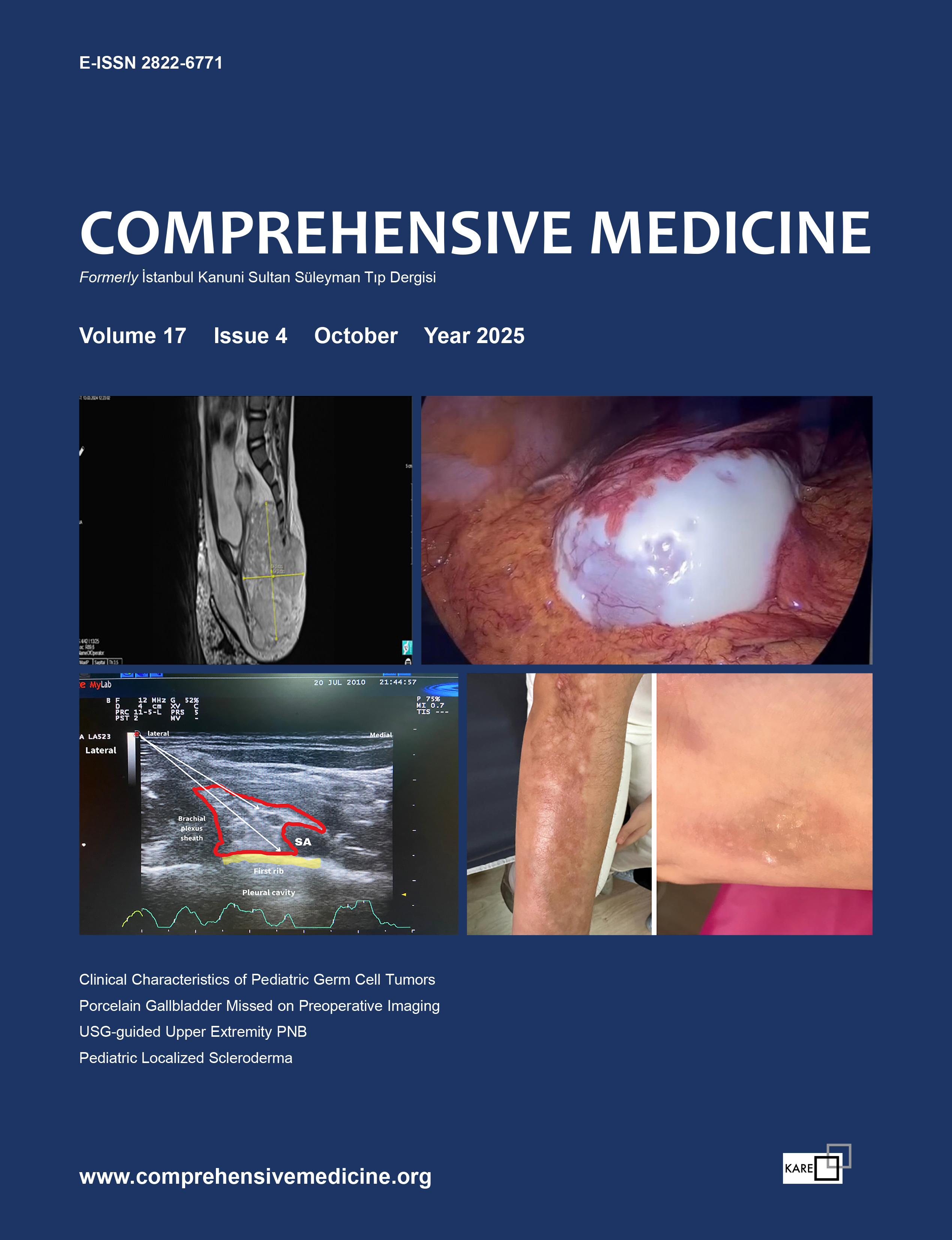Does Proteinuria In Severe Pre-eclampsia Affect Maternal and Perinatal Outcomes?
Alpaslan Akyol1, Demet Çakmak2, Ali İsmet Tekirdağ11Kanuni Sultan Suleyman Training And Research Hospital, İstanbul2Duragan State Hospital, Sinop, Turkey
OBJECTIVE: To examine the effects of proteinuria on perinatal and maternal outcomes in severe preeclampsia cases.
METHODS: We examined perinatal and maternal outcomes of the severe preeclamptic womens in our clinic by dividing them two group according to the amount of proteinuria per 24 hours (group1<2g, group2 >=2g).
RESULTS: Six hundred and ninety paitents met the inclusion criteria. Group 1 constituted 42.8% (296) and group 2 is 57.2% (394) of all cases. There weren’t any significant differences between two groups regarding perinatal and maternal outcomes. However, mean gestational age at delivery was lower in the group with proteinuria >=2g (p= 0.0005) and total maternal morbidity rates was significantly higher in the group 2 (p=0.009).
CONCLUSION: Significant proteinuria doesn't have adverse effects on perinatal and maternal outcomes in severe preeclamptic patients. Proteinuria must not be considered as an indication for delivery.
Keywords: Severe Preeclampsia, Proteinuria, Maternal-Perinatal outcomes
Ağır Preeklampsideki Proteinüri Maternal ve Perinatal Sonuçları Etkiler mi?
Alpaslan Akyol1, Demet Çakmak2, Ali İsmet Tekirdağ11İstanbul Kanuni Sultan Süleyman Eğitim Ve Araştırma Hastanesi2Sinop Durağan Devlet Hastanesi
AMAÇ: Ağır preeklampsi olgularındaki proteinürinin maternal ve perinatal sonuçlara etkisini değerlendirmek.
YÖNTEMLER: Kliniğimizde ağır preeklampsi tanısı ile yatan hastalar 24 saatlik idrardaki protein miktarına göre Grup 1 (proteinüri<2gr) ve Grup 2 (proteinüri>=2 gr) olarak iki gruba ayrıldı. Her bir gruptaki olgular maternal ve perinatal sonuçlar açısından retrospektif olarak değerlendirildi.
BULGULAR: Çalışma kriterlerine uyan toplam 690 olgu çalışmaya alındı. Grup 1 olguların %42.8’ini (296), grup 2 ise %57.2’sini (394) oluşturmaktaydı. Olgu grupları arasında maternal ve perinatal sonuçlar yönünden anlamlı fark saptanmadı. Yalnızca proteinüri >= 2gr olan olgu grubunda doğumda gebelik haftası anlamlı olarak daha küçüktü (p= 0.0005) ve toplam maternal morbidite anlamlı olarak daha fazla idi (p= 0.009).
SONUÇ: Ağır preeklampsi olgularında proteinüri derecesinin maternal ve perinatal sonuçlara etkisi yoktur. Tek başına proteinüri miktarı bir doğum endikasyonu olarak düşünülmemelidir.
Anahtar Kelimeler: Ağır Preeklampsi, Proteinüri, Maternal-Perinatal sonuçlar
Manuscript Language: Turkish






















